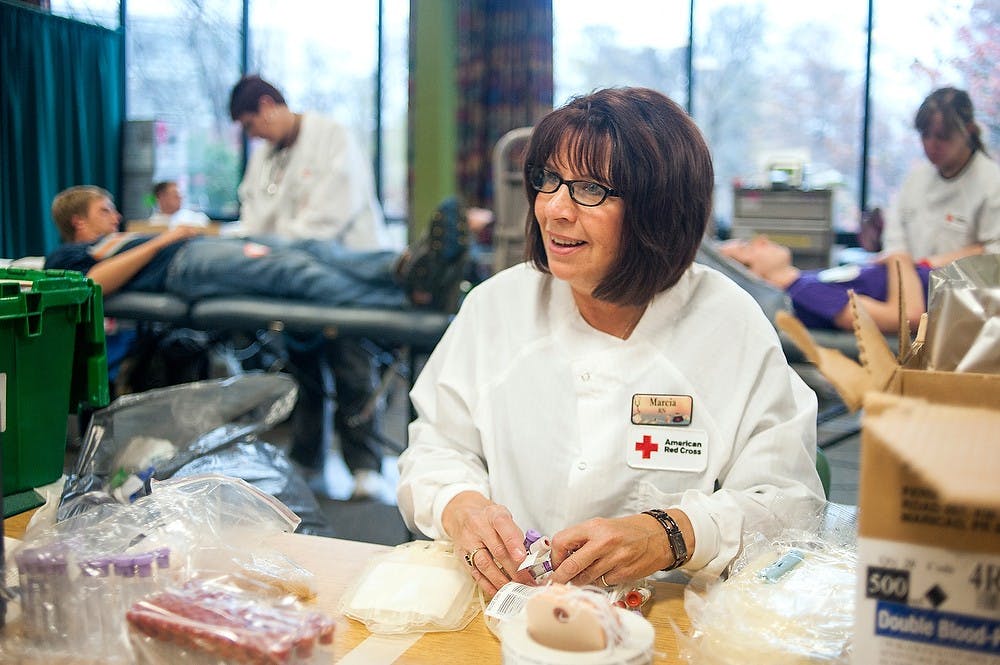With the remains of Superstorm Sandy ravaging the East Coast, the need for blood currently is higher than normal.
The American Red Cross is hoping to collect 2,000 units of blood during the three-week 19th Annual MSU-PSU Blood Challenge.

With the remains of Superstorm Sandy ravaging the East Coast, the need for blood currently is higher than normal.
The American Red Cross is hoping to collect 2,000 units of blood during the three-week 19th Annual MSU-PSU Blood Challenge.
Todd Kulman, communications program manager for the Great Lakes Blood Services Region of the American Red Cross, said the storm currently impacting the East Coast has resulted in a shortage of almost 9,000 units of blood and platelets.
“MSU students, staff and alumni have been very supportive of the challenge over the past 18 years, so I wouldn’t be surprised if we meet — or even surpass — that goal,” he said.
Superstorm Sandy forced the American Red Cross to cancel approximately 300 blood drives in 11 states across the East Coast, Kulman said. This, in addition to the increased need for blood because of the storm, led to the Red Cross holding blood drives in areas that are less likely to be affected by Sandy.
Fisheries and wildlife sophomore Cooper Sigourney gave blood for the 10th time on Tuesday.
“I felt pretty good (and) relaxed,” he said. “I was glad I was doing something nice for society.”
Sigourney’s blood type is Type O Negative, meaning his blood is compatible with every other blood type, making him a universal donor. Because of this, Sigourney said that he gives blood whenever he can.
“I can donate to every single person in the world,” he said. “It’s a pretty rare blood type.”
On the other hand, marketing junior Brooke Jackson donated blood for the first time.
“I always wanted to (give blood), but I always had a cold or something and couldn’t do it,” she said.
“I just decided that this was probably a good time, especially with the hurricane.”
Kulman urges that students and faculty make the time to donate blood.
“The need for blood is constant — it’s the blood on the shelves that helps save lives before, during and after a disaster,” he said. “If people make an appointment to donate blood in the upcoming days and weeks ahead, blood will be available in the aftermath of Hurricane Sandy, should conditions prohibit people from traveling to blood drives.”
Supply chain management senior Thomas Bee volunteered the event, distributing food and water for those who had recently given blood.
“I feel like this is something that will really benefit people, so I wanted to give back,” Bee said.
Blood drives will take place on MSU’s campus and throughout the Lansing area until Nov. 13. Appointments can be scheduled at redcrossblood.org.
Support student media! Please consider donating to The State News and help fund the future of journalism.